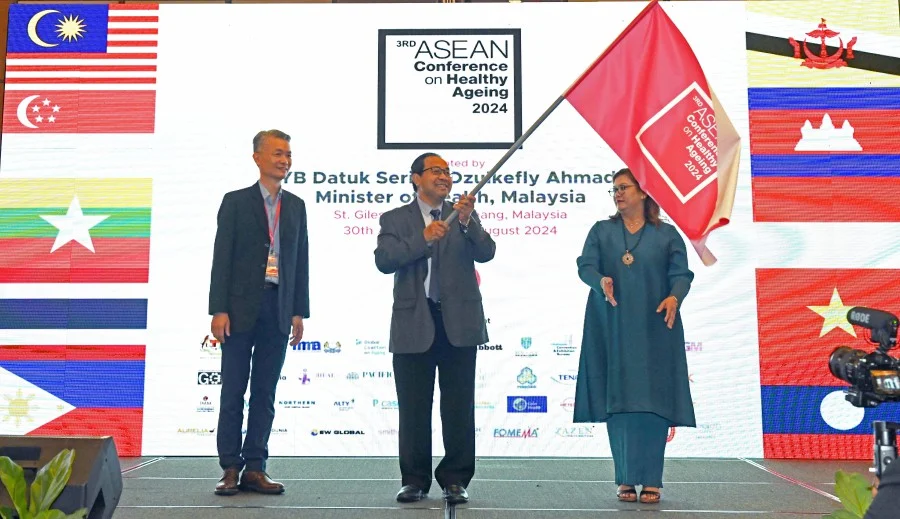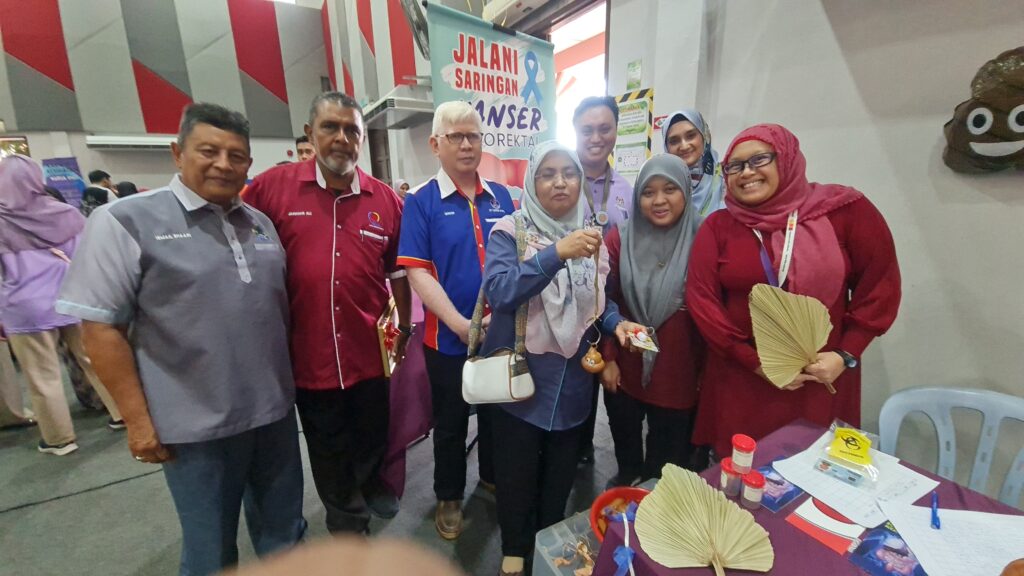Sunday Star, Sunday 9th June 2013

Prof Nathan hopes that a proper protocol to improve the system of assessing disability, damages and the processing of claims can be formulated through the seminar.
A seminar is being organised to bring together the various parties involved in the management and assessment of medical disabilities.
WHAT happens when a worker has an unfortunate experience that results in him or her being permanently disabled? How do they go about seeking compensation or getting the help they need to survive afterwards?
In order to help address some of these issues, the Malaysian Healthy Ageing Society (MHAS) is organizing a seminar entitled “Medical Disability and Assessment of Damages” at Berjaya Times Square, Kuala Lumpur, on July 6-7.
The event is jointly organised with the Malaysian Occupational Therapy Association, in collaboration with Perdana University.
Organising chairman, Associate Professor Dr Philip George, says that the seminar aims to increase awareness among the insurance industry, claims managers, the legal fraternity, doctors and other healthcare professionals, for a more comprehensive and holistic approach in dealing with medical disability and assessment of damages.
“We hope to attract various groups of people involved directly or indirectly in the medical industry with the aim of educating (them) on disability claims. It is also our hope to create a smart partnership between the insurance, legal and medical industry,” he says.
Asoc Prof Philip points out that there is an urgent need to formulate standard processes for claims and court-handling of medical disability cases.
“There are sometimes a lot of problems on claims of disability, and the process is simply painful for many, due to the long waiting period and the suffering endured by those affected, mentally and physically.

Assoc Prof Philip wants policymakers to take into consideration the issues of medical disability and damage assessment when developing key policies.
“Moreover, insurance does not provide coverage for certain cases of disability, resulting in more mental anguish,” he says.
“Early intervention is instrumental for people with disabilities,” says Perdana University professor of occupational therapy and MHAS advisor Dr Nathan Vytialingam.
“One of the main concerns is the financial implications, which can be costly in the long term for the affected patient, as well as for the Government.
“We hope that through the seminar, a proper protocol can be formulated to improve the system of assessing disability, damages and the processing of claims.”
He adds that it is also important that patients use the compensation received specifically to manage their disability, and not for other purposes.
“Disability affects quality of life. We hope that through these efforts, we can increase independency and not disability,” he says.
Assoc Prof Philip wants policymakers to take the issue of medical disability and the assessment of damages into the mainstream, and consider them when developing key policies.
This is to ensure that those affected are well compensated and can live with dignity.
What to expect
The keynote address at the seminar entitled “Understanding the Compensation Processes and Quantum Determination” will be delivered by former Chief Justice of Malaya Tun Abdul Hamid Mohamad.
“The line-up of speakers is impressive as they include faculty luminaries from overseas such as (hand and micro surgery senior consultant) Dr Vaikunthan Rajaratnam from Singapore, (consultant occupational therapist) Ms Michelle G. French, and (orthotics and prosthetics specialist) Mr Prem Anandam from Australia,” says Assoc Prof George.
One of the highlights in the seminar is a segment titled “Living well with disability – a consumer’s perspective” presented by Mala Raja. Mala will relate her experience being disabled, and how she has overcome some of the many challenges to lead a normal life.
The discussions will also include insights and perspectives from the legal fraternity and insurance industry.
Senior lawyer K. Sila Dass, who will be speaking on the topic “Fraud and Malingering in the Disability – Compensation Process”, states that a key objective of the seminar is to highlight the continual changes in medical science that result in the shifting attitude, from that of hopelessness to hopefulness, for road accident victims.
He adds that the courts too have a significant part to play for they are the final authority in evaluating the extent of injuries and the effects they produce in the injured person.
“This seminar will explore the weaknesses in the evaluation of the extent of medical disability, and the way the courts rely on expert witnesses’ opinion.
“The organisers hope that at the end of the seminar, a consensus could be formulated to be submitted to the Government for its study and implementation,” he says. Sila is also an advisor for the seminar.
Among the topics and case discussions to be covered at the seminar are assessing neurological disabilities, heart-related claims and disabilities, and relevance of pathological examination in assessments, as well as multidisciplinary assessment of road traffic accident head trauma.
SOCSO Operational Division Medical and Rehabilitation Department general manager Datin Dr Nik Amsharija Mohamed will host a forum titled “The Safety Net”.
Those interested in attending the seminar can call the MHAS secretariat at 03-2070 5600 or 03-2072 2600, log on to www.healthyageing.org or e-mail info@healthyageing.org.






